When Nigerians get depressed (Part6: Summary) Following Hive stories

Depression vector created by pch.vector - www.freepik.com and Inkscape.org
Depression is feeling like you’ve lost something but having no clue when or where you last had it. Then one day you realise what you lost is yourself.
— Mind, Body & Sole (@MindBodySoleUK) August 2, 2022
Chronic disease is one of the leading causes of depression. The person worries for his or her life.
When Nigerians suffer from depression, it is typically a woman who has just given birth. She has just given birth to a daughter, despite the fact that male births are preferred. She has just given birth and is currently experiencing postpartum depression.
When domestic violence occurs a Nigerian gets depressed; a battered woman stays in the relationship owing to her cultural background.
Hello Everyone, My name is Ebingo Kigigha and I'm an aspiring Psychiatrist. When I'm not joking around, I usually write about Mental Health on my blog. I will be talking about the part every Nigerian can play to fight this menace.
People with depression have compared their condition to "living in the dark" and "anticipating terrible uncontrollable situations." Depression affects a person's thoughts, emotions, and daily functioning. The risk that you have depression rises as the frequency, severity, and duration of your symptoms increase. There are several symptoms and signs of depression that we might observe in ourselves and others. Depression is a significant suicide risk factor.
When a depressed person raises concerns about a possible threat to their life, this should be taken very seriously. Intervention and aid could perhaps save their lives.
After reading a article regarding depression in Nigeria, I decided to write about When Nigerians Get Depressed.
Depression, a mental health issue that has claimed countless lives, affects 322 million people worldwide.
Symptoms include a melancholy disposition, loss of interest or pleasure, lower energy, feelings of guilt (especially related to a need to live) or poor self-esteem, disturbed sleep or eating, and difficulties focusing. Moreover, it inhibits a person's ability to function and do daily tasks, and can even lead to suicide.
In the previous post, We talked about the parts that every one can play in dealing with depression in Nigeria. This post we will be summarising everything about when NIgerians get depressed
Summary
Depression has a prevalence of 3.9 per cent in Nigeria. A quarter of young people, and twenty-six per cent of old people experience depression. People living with HIV/AIDS had an incidence of depression ranging from 20% to 59%, with North-Central Nigeria reporting the highest frequency.
Having a female baby and being a single mother are risk factors for postpartum depression in Nigeria. Intimate partner violence and low socioeconomic status are also significant risk factors, according to studies conducted by the country's public health service (NHS).
The WHO estimates that 5.95 per cent of women and 4.9 per cent experience depression. In an Abeokuta research, 24.5 per cent of pregnant women reported having depression.
This supports the requirement for more aggressive lobbying and behavioural education regarding the availability and application of family planning techniques. Gender roles are a bigger and more complex issue than this post can dive into.
Just 37% of depressed older Nigerians received any treatment. Access to mental health services is limited, particularly in rural areas. These barriers have long-term repercussions, as untreated depressed people are more prone to suicidal thinking and behaviour than those who have been treated for depression.
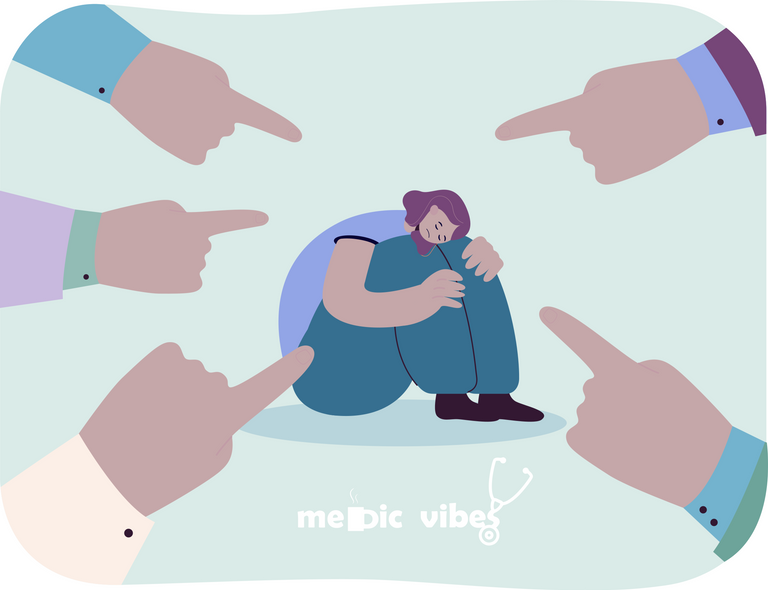
Inkscape.org
Some of these challenges include stigma and a lack of available mental health care. Depression has been linked to both problems with one's finances and with issues in one's social life. It is expected that the incidence of depression among Nigerians would continue to increase due to the country's high poverty rate.
Mental health treatments must be incorporated into and made an operational aspect of primary medical care. There is a need for more people who work in the field of mental health in order to meet the needs of the continuously expanding patient population. Raising awareness of these problems is the first step in finding solutions.
Tips
Identify unhelpful behaviours and replace them with healthy, helpful behaviours. Make it a skill of some sort- this involves setting realistic, attainable targets daily. Reduce avoidance/procrastination- this will also promote a sense of accomplishment and self-efficacy. Avoid making big decisions or contemplating major life decisions during this time.
Hive stories
I recently read a story from @blind-spot that inspired me to give extra hours to my work. He threw light into his life as a medical student hustling extra jobs to finish his medical program.
I don't want to put pressure on people who are in more sever forms of depression but I feel like this is a post that can

Get my merch...Just send me a message here so we can start working on it.

Questions
- What did you learn from this series of posts?
- Is there something you would like for me to add to these post?
- Would you like me to make a particular post related to psychiatry?
References
Abstract circle vector created by starline - www.freepik.com
Illustrations vector created by pch.vector - www.freepik.com
Check out the other posts here
Part 1
Part 2
Part 3
Part 4
Part 5
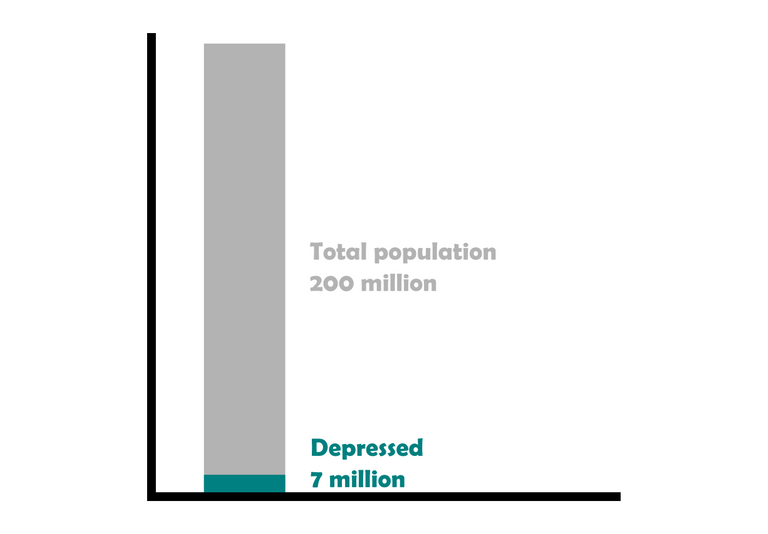
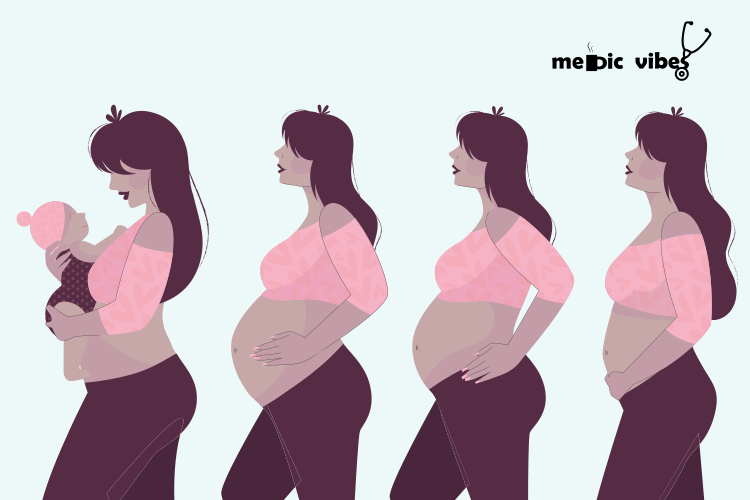
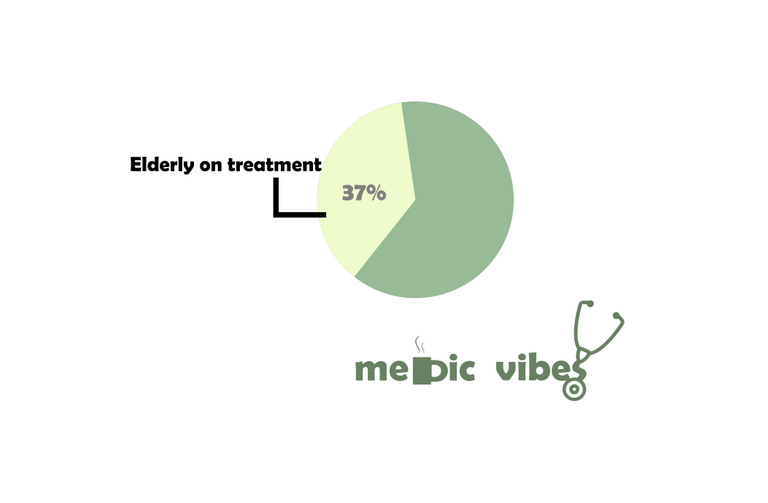
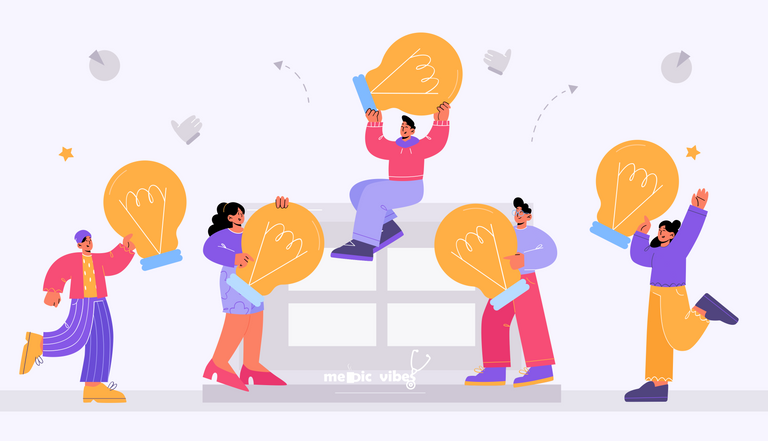
https://twitter.com/Ebingo10/status/1555649367385804801
The rewards earned on this comment will go directly to the people sharing the post on Twitter as long as they are registered with @poshtoken. Sign up at https://hiveposh.com.
Thanks for your contribution to the STEMsocial community. Feel free to join us on discord to get to know the rest of us!
Please consider delegating to the @stemsocial account (85% of the curation rewards are returned).
You may also include @stemsocial as a beneficiary of the rewards of this post to get a stronger support.